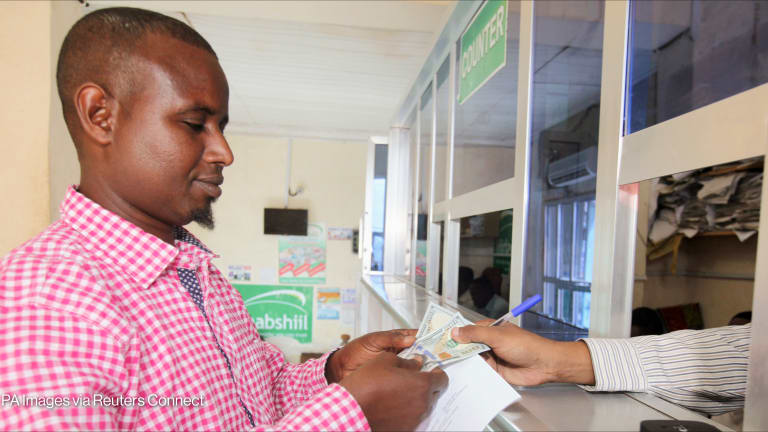
It’s not big. It’s not shiny. But there is a promising train of sustainable funding for local priorities, and it has been largely missing from discussions of country ownership and financing for development. What is this overlooked and underappreciated engine of growth? Community philanthropy.
Community philanthropy refers to foundations and other social enterprises that are funded and controlled by members of the communities they serve. They raise significant amounts of money locally from individuals and businesses, spend money locally through small grants for worthy projects, and are held accountable by local communities. You can’t get any more “locally owned” than that.
As an example, a women’s fund in Nepal, known as Tewa, has mobilized contributions from 3,000 Nepalese donors to invest in local grass-roots institutions. Its model of emphasizing small philanthropic gifts has taught women how to be responsible donors as well as grantees, and given them the tools to overcome dependency and powerlessness.
Likewise, Kenya’s Makutano Community Development Association undertook a long-term commitment to building community capacity, resulting in the construction of a road, nine dams, 17 wells, 162 pit latrines and a secondary school, as well as putting 10,000 acres of land to productive use.
While international donors, including the U.S. Agency for International Development, routinely look for local organizations that can distribute and administer “umbrella grants,” community philanthropy is something different. These foundations are not the fiscal and programmatic agents of foreign funders, nor are they simply service providers. They are grantors in their own right, whose purpose is to strengthen civil society by giving local people control over assets and engaging them in decision-making processes.
USAID, and U.S. taxpayers, are unlikely to feel comfortable ceding grant-making power over U.S. funds to such institutions. Nonetheless, the United States and the international community can bolster community philanthropy in other ways, such as by providing technical assistance and training to build the capacity of these organizations to raise and manage funds, monitor and evaluate grants, and build trust among the communities they serve.
Equally important, donors can link these foundations with sustainable sources of funding, such as the local private sector and foreign remittances — which is where the July conference on Financing for Development comes in.
As the world considers how to pay for an ambitious new set of sustainable development goals, it’s important to remember that foreign aid pales in comparison to private flows. In 2012, total official development assistance stood at $126 billion, while remittances hit $406 billion, and illicit outflows from developing countries approached $1 trillion.
With these numbers in mind, what if entrepreneurs and wealthy individuals in poor countries, instead of parking their money in foreign bank accounts, had a realistic way of investing it at home? What if immigrants, in addition to sending remittances to their own families back home, had an easy and reliable way of helping their larger communities? Community foundations offer a way to attract private donations, build social capital, strengthen civil society, transform power relationships and spark inclusive growth.
Moreover, these locally owned entities might help with the issue of closing civil society space. As Sarah Mendelson argues in her insightful new paper for the Center for Strategic and International Studies, dependence on foreign funding has tended to weaken the links between nongovernmental organizations and local populations, making them less accountable to the people they serve. Community philanthropy can help broaden domestic constituencies for change and enhance the legitimacy and relevance of proposed solutions.
Of course, helping to expand the role of community philanthropy won’t help donors get money out the door. Private resources like these don’t obviate or reduce the need for official development assistance, and community self-help is no substitute for a government’s responsibilities to its population. But the culture and practice of private giving are traditions of which Americans rightfully feel proud, and which the United States should help flourish globally.
Join the Devex community and access more in-depth analysis, breaking news and business advice — and a host of other services — on international development, humanitarian aid and global health.
Search for articles
Most Read
- 1
- 2
- 3
- 4
- 5








